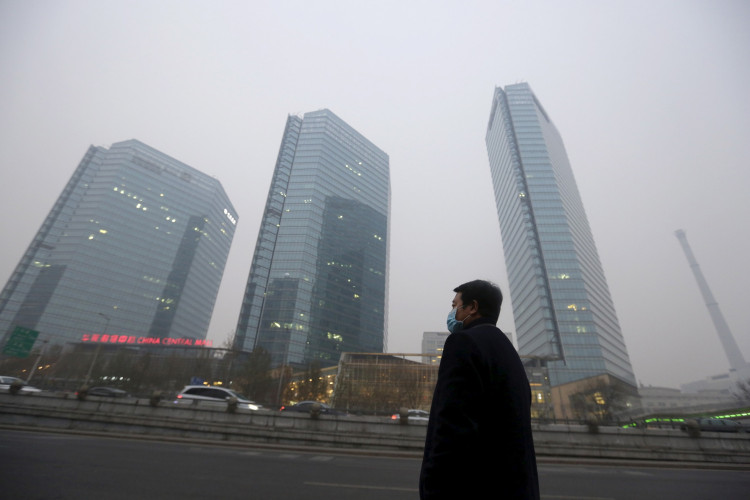Efforts to reduce coal use, minimize traffic emissions, and relocate heavy industry resulted in Beijing's air quality surpassing state standards last year, officials said Tuesday.
The readings of PM2.5, small, hazardous airborne particles, reached 33 micrograms per cubic metre in Beijing over the course of 2021, down 13% from a year earlier and complying with China's interim standard of 35 micrograms for the first time on record, officials said during a press conference on Tuesday.
Annual averages of 33 micrograms remain far higher than the World Health Organization's recommended level of 5 micrograms.
Following massive public outrage over a series of hazardous smog build-ups in Beijing and elsewhere, China declared war on pollution in 2014.
Yu Jianhua, deputy chief of Beijing's environmental protection department, characterized the city's efforts over the last 10 years as "unprecedented," as was the momentum with which it improved.
"All areas and departments collaborated and organized the entire society in order to accomplish significant improvements in Beijing's air quality," he explained.
Last year, Beijing residents saw roughly four months more of clear sky than in 2013, he added.
Beijing vowed in 2015 that it will utilize the Winter Olympics in 2022 to help promote environmental reforms in the city.
Although air quality in Beijing has improved since China won the bid to host the Games, the Ministry of Ecology and Environment has warned that winter smog hazards remain "severe."
On Thursday, Ministry representative Liu Youbin informed reporters that contingency procedures had been put in place.
"When the time comes," he stated, "Beijing and Hebei will be guided to take acceptable environmental protection measures in accordance with the law."
However, rumors that polluting heavy enterprises in the area will close down on January 1 were "not true," Liu claimed.
As an indicator of improvement, average PM2.5 readings in 2016 were 71 micrograms, but frequently exceeded 500 micrograms during the winter months, when coal-fired heating systems were turned on across the region.
Since then, Beijing and the adjacent province of Hebei have made significant efforts to switch to cleaner natural gas, as well as planting a large number of trees throughout the region.
They've also placed strict new fuel regulations on cars, as well as requiring steel mills and other industrial sites to install pollution-control technology.
In 2015, critics predicted that the Winter Olympics will be overshadowed by harmful pollution in a heavily industrialized region.
Meanwhile, Chinese President Xi Jinping stated that the Games will be "green," and Hebei promised to "reform and enhance" its industrial economy.






